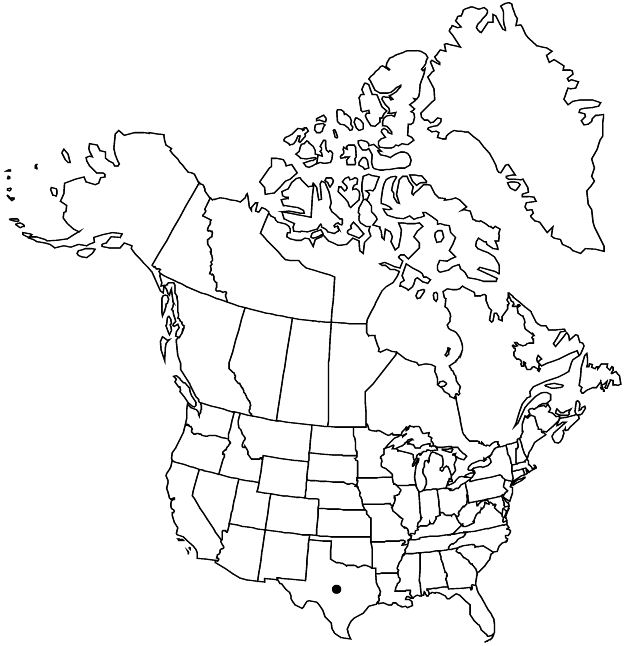Crataegus tracyi
Bull. Torrey Bot. Club 36: 639. 1909.
Shrubs or trees, 40–80 dm. Stems: twigs: new growth densely pubescent, 1-year old brown, older dull gray; thorns on twigs straight to slightly recurved, 2-years old dark gray, ± shiny, ± slender, 2.5–5 cm. Leaves: petiole 3–10 mm, length 10–25% blade; blade dark green, broadly elliptic or elliptic-rhombic, rarely narrowly oblanceolate, 3–4 cm, subcoriaceous, base cuneate, lobes 0 or sinuses shallow, margins serrate except proximally, veins 5 or 6 per side, apex acute to obtuse, glossy, abaxial surface glabrate except on veins, adaxial appressed-pubescent, usually persisting. Inflorescences 6–15-flowered; branches densely pubescent; bracteoles caducous, linear, membranous, margins strikingly stipitate-glandular. Flowers 15–17 mm diam.; hypanthium tomentose especially proximally; sepals narrowly triangular, margins glandular-serrate to glandular-pectinate, adaxially hairy in central part; stamens 10–20, anthers pink; styles 3–5. Pomes bright red, suborbicular, 8–10(–20) mm diam., pubescent; sepals patent-reflexed; pyrenes 3.
Phenology: Flowering Apr–May; fruiting Sep–Oct.
Habitat: Streamsides, sometimes under shade
Elevation: 300–1700 m
Distribution

Tex., Mexico (Coahuila, Nuevo León).
Discussion
Crataegus tracyi is common in parts of Texas (Davis Mountains and Edwards Plateau) and in the mountains of Coahuila and Nuevo León in Mexico.
Variation in Texas is considerable, much of which was documented by J. B. Phipps (1997), with the typical form the most abundant in the state. The typical form has its widest extension-shoot leaves longer than broad, thorns straight, fine, 2–5 cm, and 3 styles. Forms resembling the common Mexican variety, var. madrensis J. B. Phipps, which has its widest extension-shoot leaves as broad as long, thorns short and stout, somewhat recurved, 2–3 cm, and 4 or 5 styles, but with 10 stamens, have recently been collected in Texas. Variation in sepal margin dissection and inflorescence indumentum is also significant, much of the variation being geographically partitioned between the Davis Mountains and Edwards Plateau. Crataegus tracyi is a striking plant, having rich glossy green foliage during summer, coloring burgundy in the fall. It is hardy to USDA zone 5, and thus has good potential in ornamental horticulture.
Selected References
None.